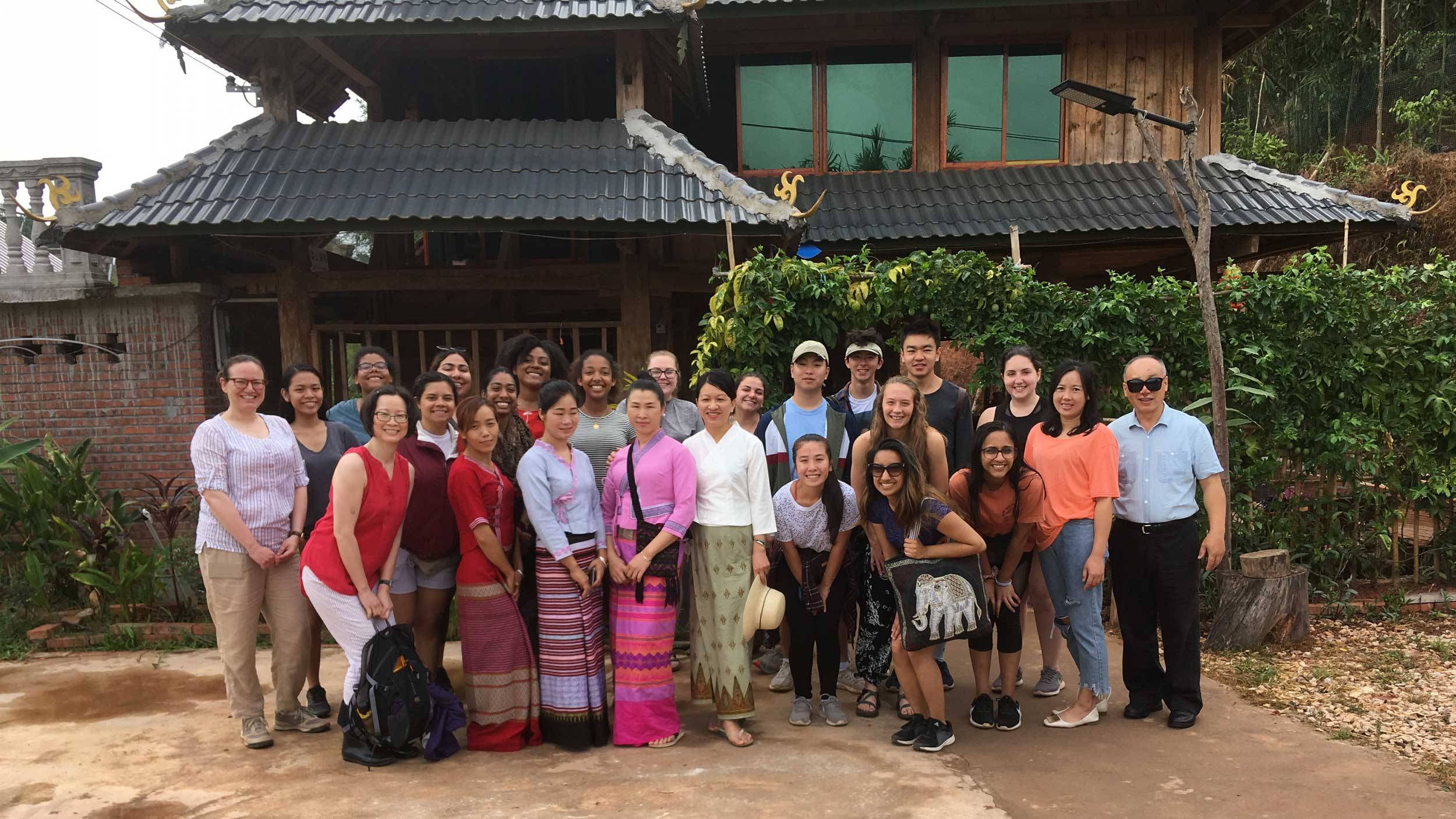After a daylong flight at the end of May, 17 students arrived in the city of Kunming, China. They spent the next few weeks traversing Yunnan Province — exploring a rainforest, staying in a mountain village, visiting an elephant reserve. Linked to the course Environmental Problems and Environmental Activism in the People’s Republic of China, this extended study let students examine issues of environmental justice, bringing its historical roots and social implications to the forefront.
Professor of Sociology Carolyn Hsu co-taught the course on campus with Associate Professor of Environmental Studies April Baptiste.
Using pedagogical methods from InterGroup Dialogue (IGD), students analyzed issues of race and identity, as well as their own position in the world in relation to environmental issues.
“IGD classes are designed to implement communication across boundaries,” Hsu said. “We focused on understanding the role of power and privilege.”
Hsu then led the extended study portion alongside Christy DeLair, curator of the Longyear Museum of Anthropology.
“It’s meaningful for students to visit the places and communities they learn about, especially within the context of environmental studies,” Hsu said. “There is immense cultural diversity in China — diversity of people, of language, of cuisine.”
In Yunnan Province, students travelled through Kunming, Lijiang, and Xishuangbanna. Volunteering with non-governmental organizations such as Green Education Center (GEC), they taught English lessons in a village school. They also facilitated environmental education by discussing the significance of sustainability with local students.
For Keara Donahue ’21, speaking with environmental activists like Chen Yongsong, who runs GEC, presented a valuable opportunity. “It was amazing to see the growth and change he’s created in rural China,” she said. “It gave me perspective on the importance of community-level activism.”
Donahue describes the extended study as transformative. “I learned so much through hearing different perspectives in regards to environmental issues,” she said. “Climate change is a global issue that we have to solve together.”
